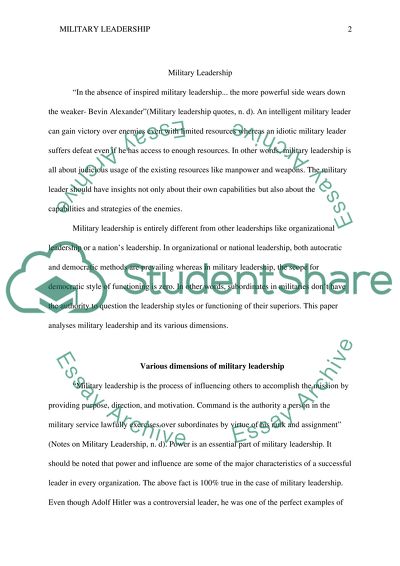Cite this document
(“Military leadership Essay Example | Topics and Well Written Essays - 1000 words”, n.d.)
Military leadership Essay Example | Topics and Well Written Essays - 1000 words. Retrieved from https://studentshare.org/military/1434380-military-leadership
Military leadership Essay Example | Topics and Well Written Essays - 1000 words. Retrieved from https://studentshare.org/military/1434380-military-leadership
(Military Leadership Essay Example | Topics and Well Written Essays - 1000 Words)
Military Leadership Essay Example | Topics and Well Written Essays - 1000 Words. https://studentshare.org/military/1434380-military-leadership.
Military Leadership Essay Example | Topics and Well Written Essays - 1000 Words. https://studentshare.org/military/1434380-military-leadership.
“Military Leadership Essay Example | Topics and Well Written Essays - 1000 Words”, n.d. https://studentshare.org/military/1434380-military-leadership.


